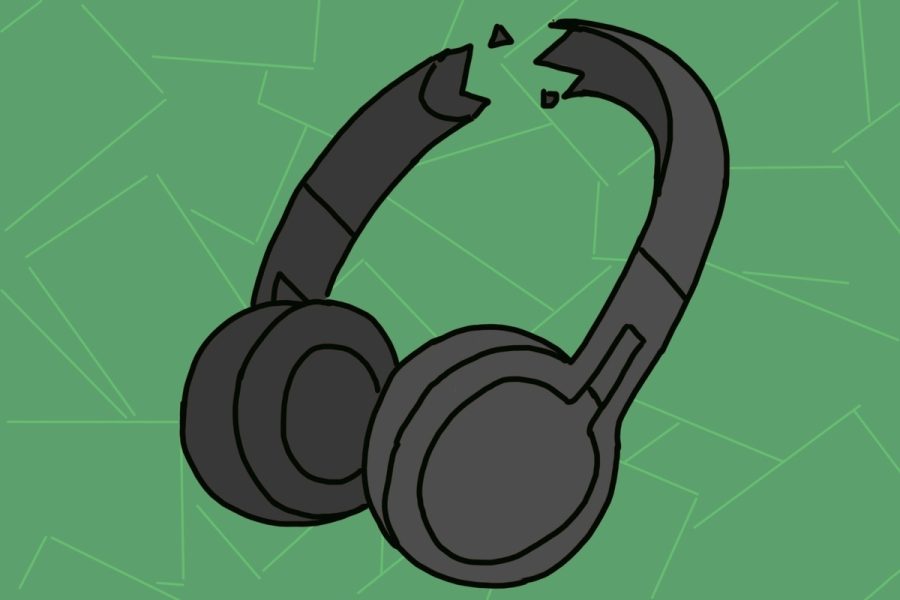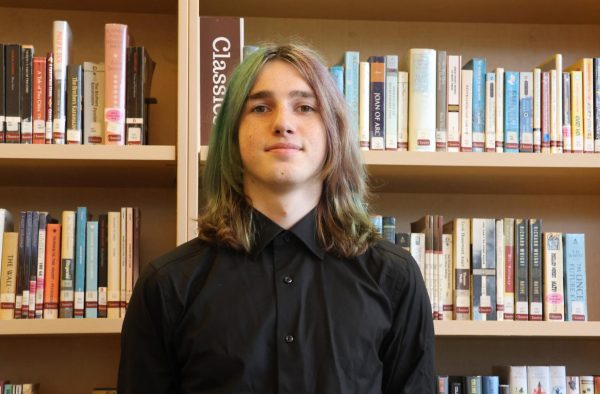Has Money Taken Away Music’s Heart?
Music, something everyone loves so dearly, may be taking a turn; capitalism is killing yet another form of media.
May 24, 2023
Almost everyone listens to music on a regular basis. Whether it is in the car, at home, concerts, with friends, or just by yourself, music is a big part of our lives.
Yet I feel that it is losing its original purpose. As time passes, music is straying further and further from being a way to tell stories, towards being a product whose only job is to sound good and ultimately make money.
Music has been around for tens of thousands of years, and it comes in many different forms. From just singing to using instruments, to using technology, it has definitely been modernized; for years, music was used as another form of storytelling with soap operas, folk music, and hymns. Yet as more people began making their own music and telling their own stories, people began to stop listening to them and only listening to the big creators — the ones who stick to very strict song archetypes, making big music end up getting repetitive by following the same chord progressions, leads and tempo.
As each year passes, big musicians keep on putting out albums full of songs with no heart in them; artists stopped creating music that was from within them and their own emotions. Pop and hip hop, two of the most popular genres today, are plagued with this. Every now and then, a song or an entire album — which does tell a story — will break through and peak charts. For example, “As It Was” by Harry Styles uses nostalgia to portray a special feeling many people may experience from time to time, or Taylor Swift’s latest album, “Midnights,” brings conclusions to the story she has been telling for years.
Sadly, these are the minority.
“Dangerous: The Double Album” by Morgan Wallen tells a beautiful story by portraying many different aspects of his lifestyle with its ups and downs that sets it above the rest, leaving it on the Billboard 200 where it peaked at No. 1, breaking records for how long it stayed there and still staying near the top, being on the charts for 121 weeks by the time this was written.
Why don’t more musicians follow his lead?
My theory is that record labels are pushing very hard for these big creators to churn out product: songs whose only purpose is to not sound bad.
Record labels seem to only want “radio music,” that can be played for anyone and have them enjoy it, whether that’s by a cool beat or amazing vocals. Artists aren’t creating music they want to make, they are making what will get the most streams. This leads to less individuality among artists, making everything sound the same.
I see a lot of creators debut with wonderful albums that have a unique sound, and perspective, or put feelings into words and show emotion about their experiences or the world around them. Then, when they release their second album, it’s all repetitive, bland, and boring because they were making it for money and not fun.
Because of this, we are left with a very small amount of quality albums from some of the best creators.
Less of something amazing is better than a lot of nothing in my opinion; I believe everyone would be much happier if they had better music, even if it takes a little longer to come out.
As a society, I believe we could push for quality over quantity fairly easily.
It would not be that much of a hassle for a community to collectively start pushing against something this simple. If record labels saw that it is what people want, they might realize they could make more money this way, making it a win-win for everyone.
This focus on quantity over quality brings up another big problem, mass consumerism, which affects many aspects of our life yet we all still feed into it, endlessly scrolling and clicking.
Even though music is not commonly thought of as another form of media, it is still sold and marketed like one.
With apps like Tiktok and Instagram, where people will post stories or videos captioned with short clips of songs, music is just as much a part of the media as anything else. We should be able to separate the two, making music its own thing, adding a sense of uniqueness or ambiguity to the music.
The big question is this: which one of these two paths will music take? Will music evolve into 15-second clips or go back to being an art form?
We will just have to wait and see how music develops with time.





